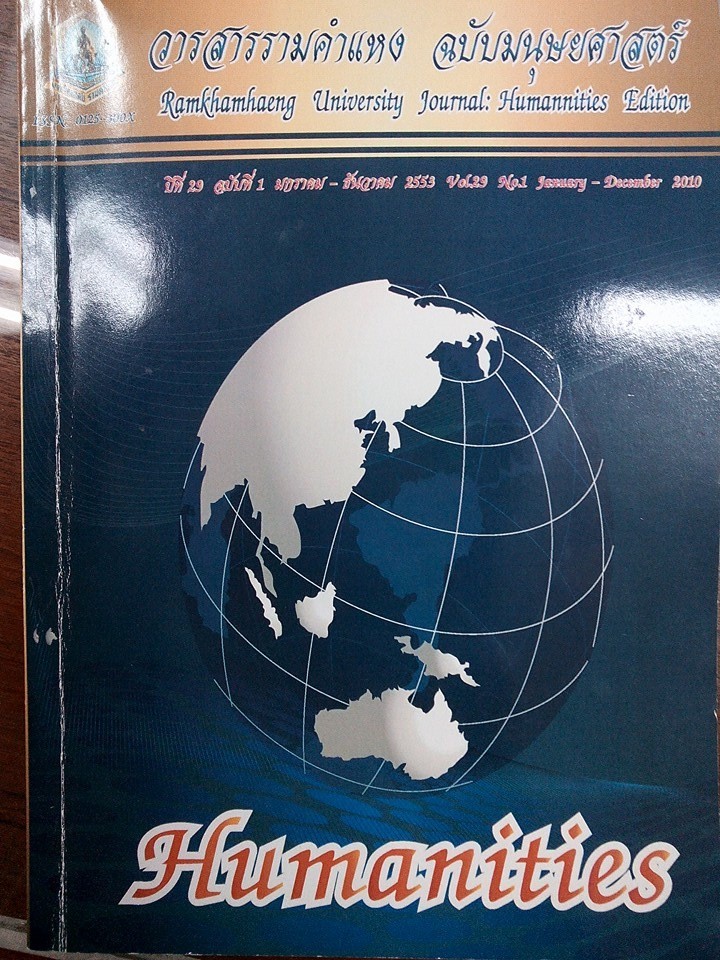การศึกษาเปรียบเทียบเกณฑ์ตัดสินความดีในปรัชญาของเพลโตกับพุทธปรัชญาเถรวาท A Comparative Study of the Ethical Judgment Criterion of Goodness in Plato’s Philosophy and Theravada Buddhist Philosophy
Main Article Content
บทคัดย่อ
บทคัดย่อ
ในการศึกษาวิจัยพบว่า การศึกษาเปรียบเทียบเกณฑ์ตัดสินความดีในปรัชญาของเพลโตกับพุทธปรัชญาเถรวาท มีความเหมือนกันและความแตกต่างกันของปรัชญาทั้งสอง
เกณฑ์ตัดสินความดีในปรัชญาของเพลโต พิจารณาโดยหลักสำคัญของจริยธรรมที่วางอยู่บนพื้นฐานของ “สัจภาพของมนุษย์” ทั้งใน “มิติปัจเจกภาพ” และ “มิติความเป็นสมาชิกของมนุษยชาติ” ตามหลักสิทธิ เสรีภาพ ภราดรภาพ ความเสมอภาค ความยุติธรรม อย่างเท่าเทียมกันในฐานะเป็นมนุษย์ด้วยเหตุผลและสติปัญญาที่สำคัญ คือ คุณธรรมของเพลโตที่มีความกลมกลืนกัน 4 ประเภท คือ 1) คุณธรรมทางปัญญา 2) คุณธรรมทางความกล้าหาญ 3) คุณธรรมทางความรู้จักประมาณ 4) คุณธรรมทางความยุติธรรม คุณธรรมทั้ง 4 ของเพลโตถือว่า เป็นคุณธรรมที่จะปกครอง ทางสังคมและปัจเจกชนที่แสวงหาความยุติธรรมทางคุณธรรม ทางสังคมที่ทำให้จิตใจขัดเกลาด้วยความเมตตากรุณา เอื้อเฟื้อเผื่อแผ่ และอยู่ร่วมกันโดยสันติมีกฎเกณฑ์ และมีกติกาในสังคม
ส่วนเกณฑ์ตัดสินความดีของพุทธปรัชญาเถรวาท มีหลักการดำเนินชีวิตในสังคมที่มีจุดมุ่งหมายสูงสุด ที่เป็นอุดมคติของชีวิตในเกณฑ์ตัดสินว่า “การกระทำใดดีหรือไม่ดี ควรหรือไม่ควร” เพื่อให้บุคคลมีชีวิตที่ดีช่วยเหลือเกื้อกูลกันในสังคมได้เป็นอย่างดี ในการดำเนินชีวิตที่ดี พุทธปรัชญาเถรวาทจึงจัดระบบของเกณฑ์ตัดสินความดีไว้ 3 ระดับ คือ 1) ระดับศีล 5 2) ระดับกุศลกรรมบถ 10 และ 3) ระดับมรรค 8
เกณฑ์ตัดสินความดีของเพลโตกับพุทธปรัชญาเถรวาทจึงเน้นในการพิจารณาความถูกต้องของการกระทำที่มีเหตุผลและปัญญา นอกจากนี้อารมณ์หรือความรู้สึกทางกาย ทางใจ และทาง อุดมคติแบ่งได้ 3 ระดับ คือ 1) ระดับศีลธรรม 2) ระดับคุณธรรม 3) ระดับจริยธรรม ดังนั้น เกณฑ์ตัดสินความดีของปรัชญา ทั้งสองมีลักษณะที่คล้ายคลึงกัน พอจะสรุปได้ 5 ประการ คือ 1) เรื่องเจตนา และเหตุผลเป็นองค์ประกอบหลักเกณฑ์ตัดสินความดี 2) เรื่องกฎแห่งเสรีภาพของเพลโต กับพุทธปรัชญาเถรวาท 3) เรื่องคุณธรรมของเพลโตกับพุทธปรัชญาเถรวาท 4) เรื่องเกณฑ์ตัดสินความดีกับแรงจูงใจของเพลโตกับพุทธปรัชญาเถรวาท 5) เรื่องความเป็นสากลและคุณค่าของมนุษย์ของเพลโตกับพุทธปรัชญาเถรวาท อย่างไรก็ตาม ยังมีความแตกต่างกันในเรื่องของเจตนาและเหตุผลหรือปัญญา ในการตัดสินการกระทำของมนุษย์ว่า อะไรดี ชั่ว ถูก ผิด ตามทัศนะของปรัชญาทั้งสอง
ABSTRACT
In this research, it is found that the criteria of the ethical judgment in both Plato’s Philosophy and Theravada Buddhist Philosophy constitute both similarity and differences.
Plato’s ethical judgments criteria are based on human beings’ reality covering both dimensions of “individualism” and “collectivism” according to the moral virtues of human rights, independence, fraternity, equitability, and fairness which belongs to a human being who is possessed of reason and intellect. Plato’s virtues are divided into four types of harmony:- 1) wisdom, 2) bravery, 3) moderation, and 4) justice. These 4 virtues are considered as merits for individual and social governance that is in search of virtuous justness, socialization, mercifulness, generosity, and peacefulness under the social regulations and rules.
On the other hand, the criterion of judging the goodness in Theravada Buddhist Philosophy is of the principle in carrying out the livelihood in the societies with the ultimate life goal. It is an idealism based on the personal act which can be judged as good, bad and neutral to enable the people to be helpful to one another very well in virtuous livelihood. The Theravada Buddhist Philosophy, thus, sets up the system of the criterion of judging the goodness at 3 levels namely:- 1. The level of five precepts, 2. The level of the 10 paths of meritorious action and, 3. The level of the eightfold path
The criteria of ethical judgments in both Plato’s Philosophy and Theravada Buddhist Philosophy focused on the reasonable and intellectual acts including sensuous feelings which constitute three different levels:- 1) precepts, 2) morality and 3) ethics. Thus, the criteria of judging the goodness in these two philosophies are similar and can be summarized into the following five viewpoints; 1) The viewpoint of the volition and the reason which are the basic constitutions of criterion of judging the virtues, 2) The rules of freedom based on Plato’s Philosophy and Theravada Buddhist Philosophy, 3) The morality based on Plato’s Philosophy and Theravada Buddhist Philosophy, 4) The virtuous criterion and motivation based on Plato’s Philosophy and Theravada Buddhist Philosophy, and lastly 5) The viewpoint on universality and human values based on Plato’s Philosophy and Theravada Buddhist Philosophy. However, according to both philosophies, there are differences in the intention and wisdom in convicting what beings’ act is good or bad, righteous or evil.
Article Details

อนุญาตภายใต้เงื่อนไข Creative Commons Attribution-NonCommercial-NoDerivatives 4.0 International License.
ประกาศลิขสิทธิ์จะปรากฏในเกี่ยวกับวารสาร ควรอธิบายสำหรับผู้อ่านและผู้เขียนว่าเจ้าของลิขสิทธิ์เป็นผู้เขียนวารสารหรือบุคคลที่สาม ควรรวมถึงข้อตกลงการอนุญาตเพิ่มเติม (เช่นใบอนุญาตครีเอทีฟคอมมอนส์) ที่ให้สิทธิ์แก่ผู้อ่าน (ดูตัวอย่าง) และควรให้วิธีการรักษาความปลอดภัยหากจำเป็นสำหรับการใช้เนื้อหาของวารสาร


